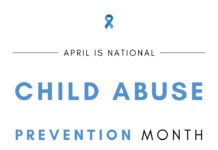
I get asked quite frequently while out in the field if I love my job. I wouldn’t be here if I didn’t. Of course, I don’t say that part out loud. I respond with a simple “yes” and sometimes share a highlight of working for The Catholic Sun:
- You get to go to the extra-special Masses (anniversaries, ordinations, dedications, groundbreakings)
- You’re not always stuck at the office desk all day long. You can head to Mass, a prayer vigil, soup kitchen or anywhere else Catholics are making a difference.
- If you’re working Christmas or Easter, it’s for good reason.
- You’re generally reporting good news and working with people who don’t try to outrun the camera, like might happen in secular media.
- You focus on the “hope” aspect. I remember someone telling me that sometime after Immaculate Heart Radio launched. She was familiar with the network when she lived elsewhere and described the difference between that and secular stations as such. Catholic media focuses on “hope.”
The job also comes with its own set of challenges:
- Spellcheck — You can’t rely too heavily on spell check. If you do, you might accidentally print “sin” instead of “son” or “The Catholic Sin” instead of “The Catholic Sun.” You could also inadvertently elevate any woman religious to sainthood if “St. _____” instead of “Sr. ______” escapes the proofreading process. (Guilty on that one).
- Advances toward Canonization — Certainly a joyous step every time the pope declares a saint venerable, blessed or canonized, but that also makes the writing process longer. For example, now it’s “Blessed” or “Bl.” Pope John XXIII School.
- Facebook — An extremely helpful tool to seek out newsworthy announcements or ideas for full stories, but also tough to remember how each parish or priest abbreviates itself online. Some parishes in the Phoenix Diocese spell out “saint” for their Facebook name, others abbreviate “St.” Some don’t use a period. Others tack on a city name or “community” or “Catholic Church” or “Catholic Faith Community” behind the name.
Priests are just as tough using “Fr.” “Fr” and “Father-”
Dioceses are guilty too switching between “____ Diocese” and “Diocese of ____” for Facebook screen names, Twitter handles, URLs and such. You also have to remember if they use the “of” and if they’re a diocese or archdiocese.
Clearly, these are all minor setbacks.
It’s an honor working in Catholic media, an outlet which keeps expanding in the Phoenix Diocese. Local Catholics can get their Church news in the following ways:
- Almost daily online (via Twitter and Facebook feeds and regular online posts for both the Phoenix Diocese and The Catholic Sun)
- Weekly over the air (through The Bishop’s Hour radio show/podcast and “Catholics Matter” following the Sunday 9 a.m. televised Mass)
- Monthly in print through The Catholic Sun
A recent article highlighted communication efforts in the Phoenix Diocese. It was to promote this weekend’s Catholic Communication Campaign. It’s a nationwide effort that funds local and national media projects. Yes, advertising and sponsorships help a lot, but it doesn’t cover everything.
It’s through Catholic media and other in-depth/impactful stories that media consumers are inspired to think and ideally, act. Pope Benedict spoke of the need for word and silence in his message for the World Day of Communication.
In silence, we are better able to listen to and understand ourselves; ideas come to birth and acquire depth; we understand with greater clarity what it is we want to say and what we expect from others; and we choose how to express ourselves. By remaining silent we allow the other person to speak, to express him or herself; and we avoid being tied simply to our own words and ideas without them being adequately tested. In this way, space is created for mutual listening, and deeper human relationships become possible.
[later] Word and silence: learning to communicate is learning to listen and contemplate as well as speak. This is especially important for those engaged in the task of evangelization: both silence and word are essential elements, integral to the Church’s work of communication for the sake of a renewed proclamation of Christ in today’s world.
That’s what we try to do. Communicate and envangelize through word, certainly, and in silence between issue dates and broadcasts.
Feel free to do your part to support Catholic communication efforts in your area, even if that role is to simply read, listen or watch. Share one of our stories through the mail or social media if you want. Financial support helps too if you’re able.






